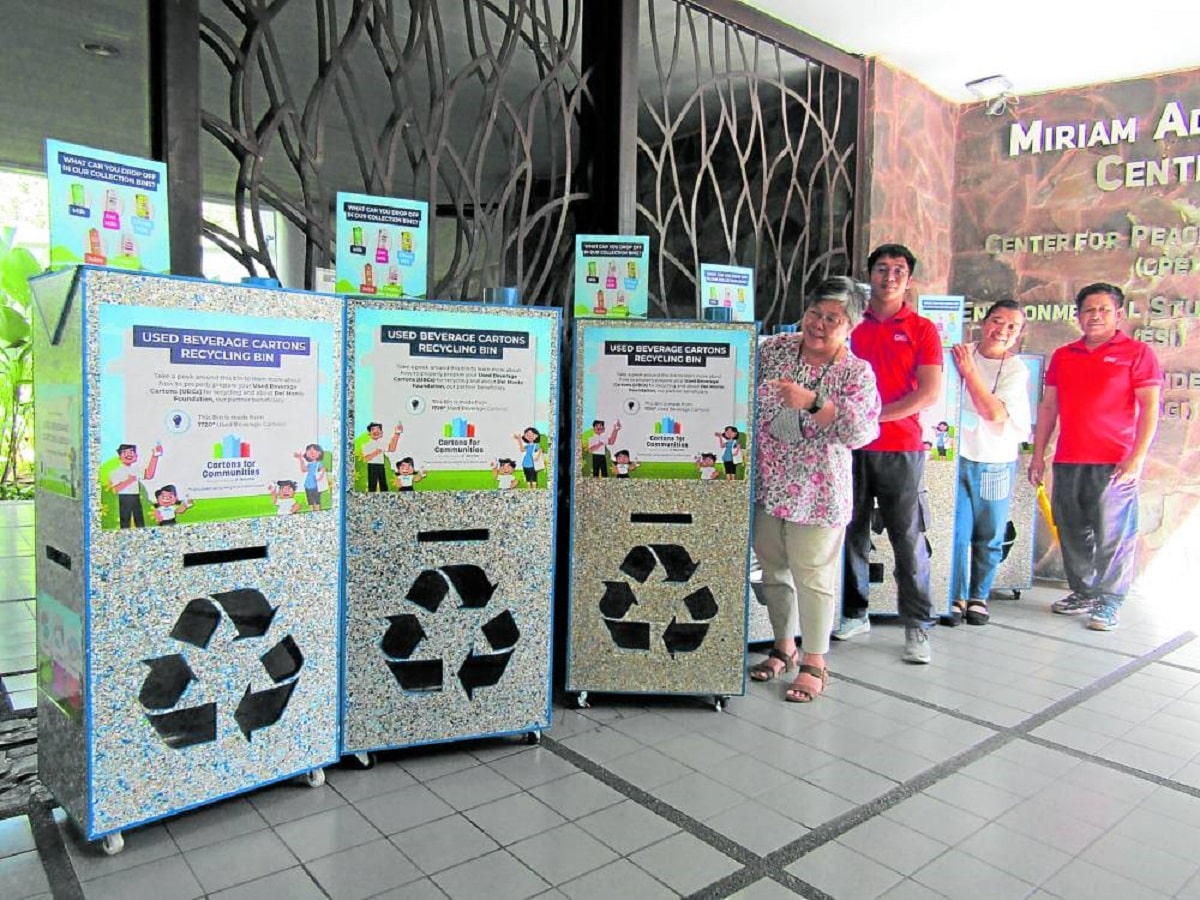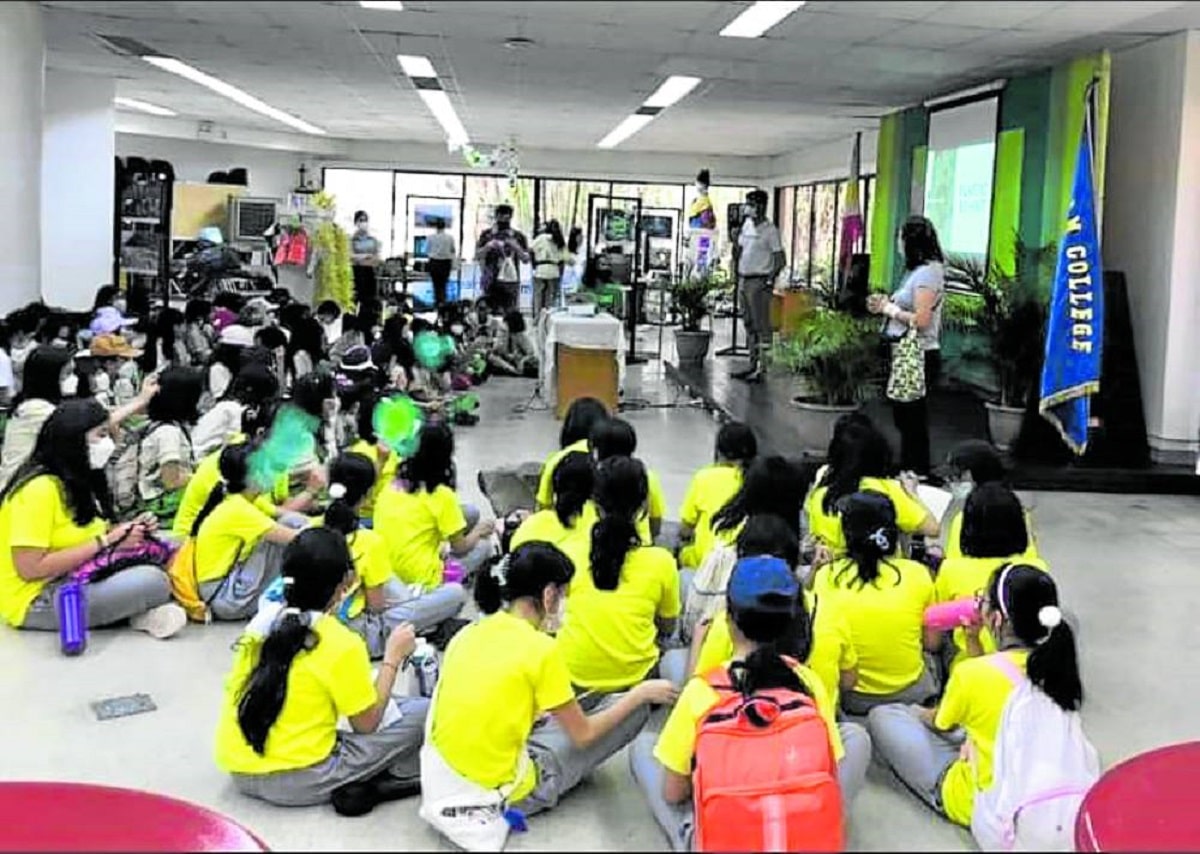Teaching the next gen how to care for the earth

EARLY ADVOCATE Miriam College was among the first institutions to introduce a solid waste segregation program to reinforce the 3R’s—reduce, reuse, and recycle. —Contributed photos
MANILA, Philippines — Miriam College’s (MC’s) strong classroom advocacy for environmental care and protection has always been a source of school pride. More importantly, it has engaged the members of its community to go beyond making conversations on environmental issues to taking action for the preservation of ecological integrity.
Providing a myriad of opportunities to students, faculty, and employees to make peace with nature is a commitment cast in stone.
To address the problem of garbage disposal, MC in the early 1990s introduced the Solid Waste Segregation Program to reinforce its campaign for what was then known as the 3R’s—reduce, reuse, and recycle. Identifying and putting in place such practices aimed to reduce consumption of utilities and supplies, reuse materials like paper, folders, and envelopes, and use recyclable containers.
A precursor of this was the launch of the Balik-Bayong Project—a call to use what is now known as eco-bags when shopping. In the late 1980s, the school also banned the use of styrofoam and balloons.

YOUNG VANGUARDS Students learn to engage and take action for the environment and their communities.
With the worsening garbage crisis in Metro Manila which contributes to global warming, pollution, and biodiversity loss, the Zero Waste Campaign was launched in 2018 as a climate action response, aimed not only to reduce garbage generated but also to call for lifestyle change. Then, the school’s 2020 Zero Waste Policy banned, among others, the use of single-use plastics and disposables.
Article continues after this advertisementToday, the Environmental Studies Institute monitors the garbage generated on campus in order to come up with realizable reduction targets. Having an idea of how much garbage you are producing makes you more mindful of your waste footprint. And reducing the waste generated means reducing the garbage that ends up in sanitary landfills.
Article continues after this advertisementTranslating the knowledge gained in classrooms into behaviors that contribute to the betterment of society, particularly in the preservation of ecological integrity, is a daunting task. One can never ascertain to what extent the lessons learned in the classrooms are internalized by students.
But when such a knowledge and values about the environment are manifested in action, it becomes an indicator of the success of the teaching-learning process, and ultimately is a win for our communities and the planet. —Contributed














